Vietnamese Sticky Rice: A Staple of Tradition and Taste
Vietnamese sticky rice, is more than just a meal; it’s a profound link to the nation’s culinary history, customs, and culture. From festive feasts to busy street vendors, sticky rice is a staple food. Allow MOTOGO Tours to examine the realm of Vietnamese sticky rice and the reasons it is a staple food item of the country more closely.
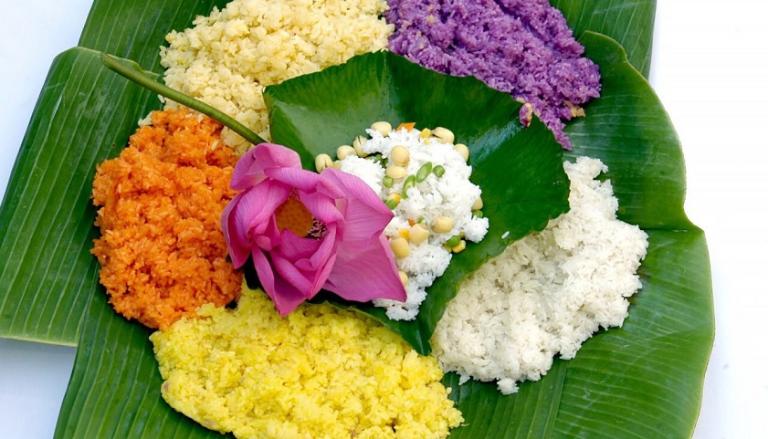
What is Vietnamese Sticky Rice?
Grown all over Southeast Asia, including Vietnam, sticky rice—also known as glutinous rice—though it lacks gluten—is a kind of rice. Its great starch concentration distinguishes it from ordinary rice and provides its unique sticky texture when cooked. Often employed in sweet and savory cuisine, sticky rice is quite flexible.
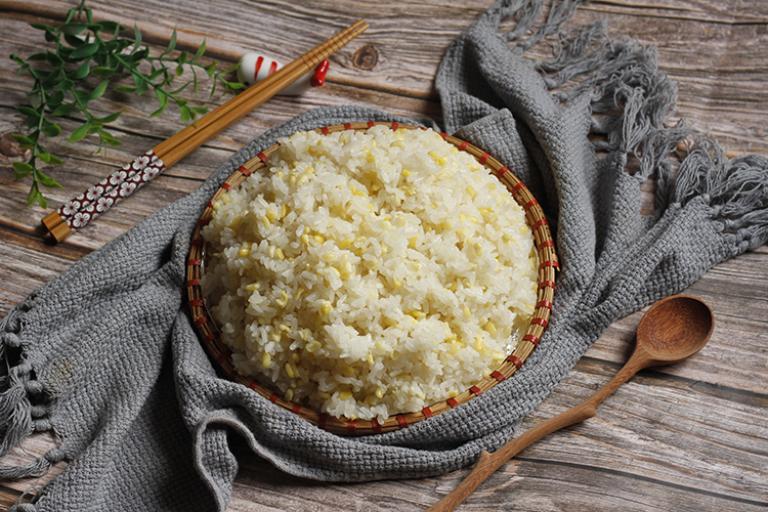
Commonly known in Vietnamese as “xôi, a term that really connects with the people and evokes thoughts of comfort cuisine and custom. Although many link sticky rice to street cuisine or snacks, it finds a place in both daily meals and ceremonial offerings both.
Key Ingredients of Vietnamese Sticky Rice
Xoi is more than simply sticky rice; it’s a well-made meal with a rich and pleasant taste created from a few basic but indispensable ingredients.
Rice that is glutinous
Xôi mostly consists of sticky rice or gao nep. Because of its higher starch level than ordinary rice, this one cooks to have a sticky feel. Making great xôi depends on the rice’s quality.
Mung beans
Mung beans are a common filler or topping for many kinds of xoi. The beans provide a mild sweetness and a smooth texture that wonderfully balances the rice’s stickiness.
Coconut Milk with Sugar
In sweet variations of xoi, the rice is flavored richly with coconut milk and sugar. While the sugar counteracts the starchiness, the coconut milk renders the rice velvety.
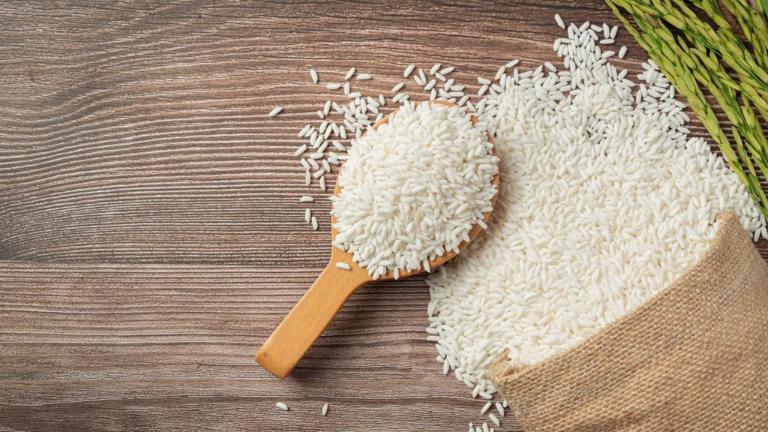
Xoi’s Making: A Methodical Guide
Making xôi is a time-honoured activity with careful attention to detail. Traditionally, this is done:
Getting the Glutinous Rice Ready
The sticky rice must first be steeped for several hours or overnight. By letting the rice soak, it absorbs water and softens, therefore guaranteeing even cooking.
Cooking the Rice by Steam
The rice is drained and put in a bamboo steamer following soaking. Steamed over boiling water, the rice softens and sticks together. Some recipes ask for adding coconut milk during the steaming process to give the rice a creamy taste.
Enhancing Flavours and Toppings
Topings include mung beans, shredded coconut, or pork floss are added once the rice is cooked through. Whether you’re creating a sweet or savory xôi will affect the toppings.
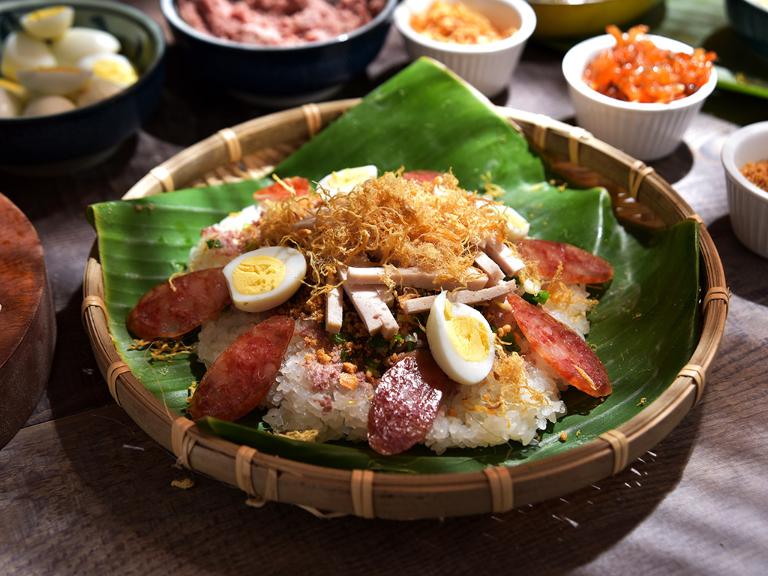
>>> Let’s see more: Top 10+ Must-try Dishes in Hanoi: A Guide to Ha Noi’s Best Food
Famous Vietnamese Sticky Rice Dishes to Try
Every area of Vietnam approaches sticky rice cuisine in different ways. Xôi is often presented in the northern areas alongside savory accompaniments include fried shallots, mung beans, even pâté. While in the south sweet sticky rice dishes made with coconut and sugar are more frequent, in central Vietnam sticky rice is typically coupled with spicy cuisine.
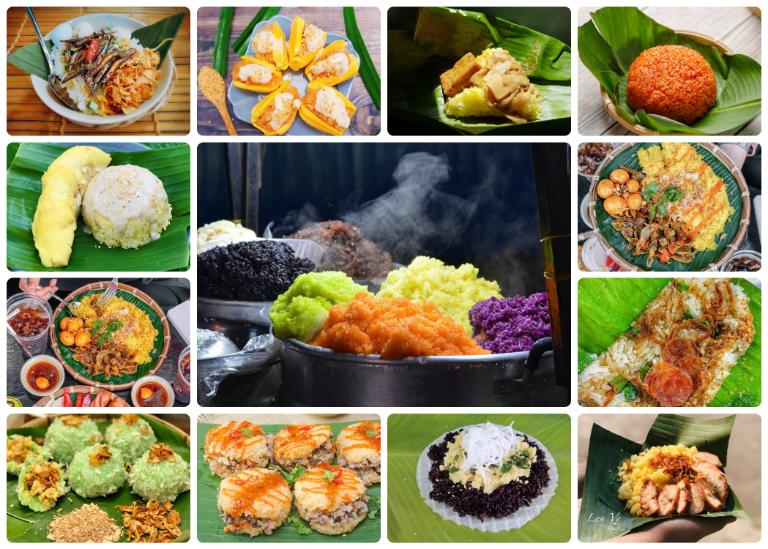
Sweet Sticky Rice Variations (Xoi Ngot)
Sweet sticky rice (xoi ngot) is well-known for its unique taste, as its name implies; it is usually richly flavored by mixing it with coconut milk. Sometimes pandan leaves or magenta plant is used to dye the rice green or purple, producing exquisitely colored food. Sweet sticky rice can be delightfully varied in numerous ways:
Corn Sticky Rice (Xoi Bap)
Combining whole corn kernels into the recipe, corn sticky rice is a heartier form of xôi. On its own, the sweet corn balances the chewy texture of the rice, rendering it a full dinner. Usually served as a breakfast meal, it is topped occasionally with fried shallots and sugar for additional taste.
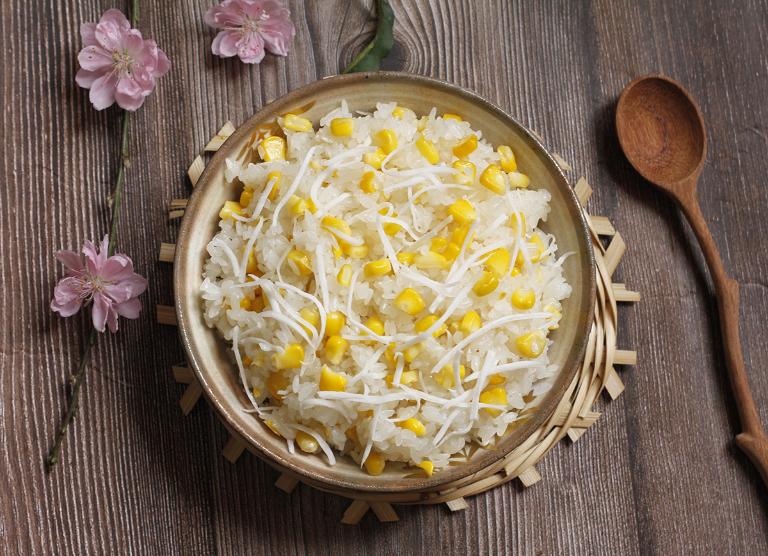
Peanut Sticky Rice ( Xoi Lac)
For people who love peanuts, xoi lac is absolutely must-try. Usually topped with sesame seeds, this meal calls for sticky rice combined with toasted peanuts. The nutty crunch brings a wonderful texture, and the tastes are really enticing. Enjoy it warm; it will help you to appreciate it.
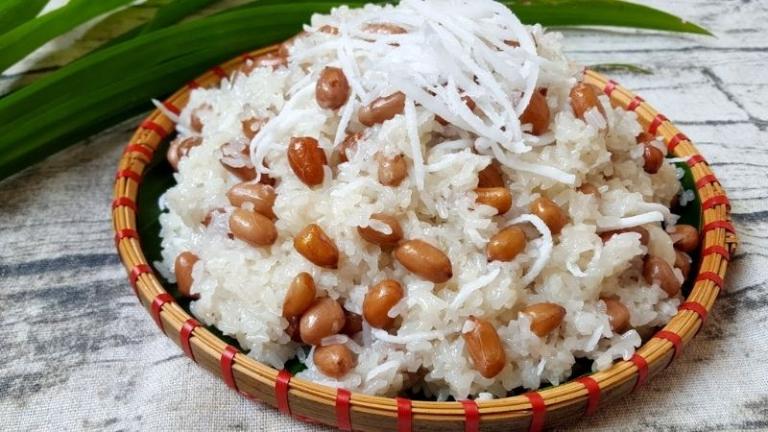
>>> Let’s see more: Vegetarian Dishes in Hanoi: Discover the Best Plant-Based Dishes
Sticky Rice with Beans (Xoi Dau)
Often eaten as a side dish or breakfast, xoi dau is the most basic variation of sticky rice. Its simplicity lets it go with a multitude of toppings, like fried shallots and mung beans. White sticky rice is a flexible component of Vietnamese cuisine since its neutral taste lets other flavors flourish on a blank canvas.
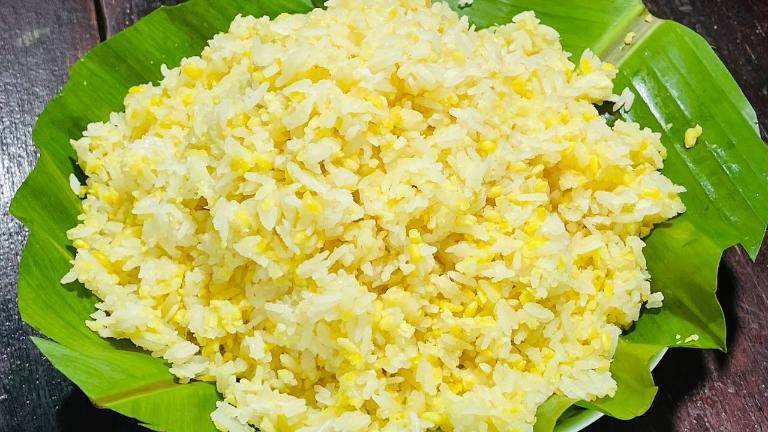
Mango Sticky Rice ( Xoi Xoai)
Common in southern Vietnam, where mangoes are plentiful, this dish combines sticky rice softened with coconut milk and topped with fresh mango slices for a tropical, refreshing treat.
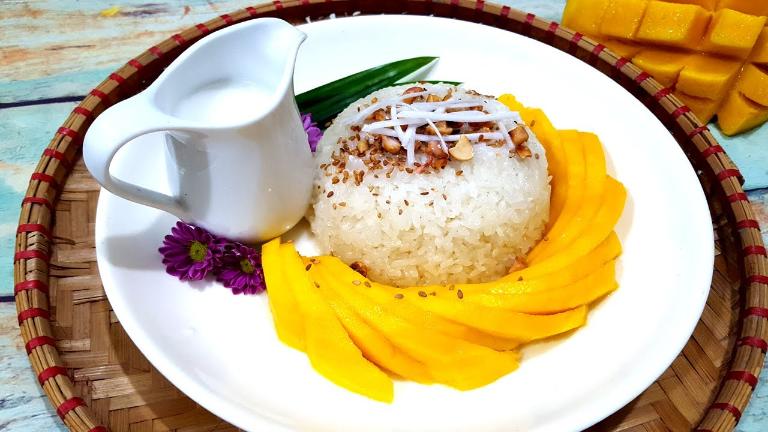
Red Sticky Rice ( Xoi Gac)
Xoi gac is easily recognized by its vibrant red color, which symbolizes good luck in Vietnamese culture. It is often served during Tet or weddings but can also be found at local markets year-round. The sticky rice is flavored with sweet gourd and coconut milk, giving it a distinct taste and festive appearance.
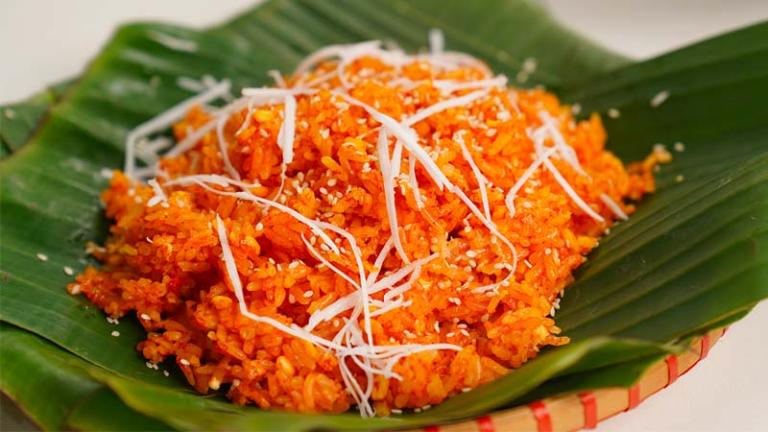
Jack Fruit Sticky Rice ( Xoi Mit)
Made mostly with glutinous rice, ripe jackfruit, and coconut milk, Jack fuit sticky rice is a Vietnamese delicacy. The end effect is a delicately layered dish with a wonderful chewy texture, creaminess, and sweetness. Both residents and visitors enjoy it as a snack or dessert most of the time.
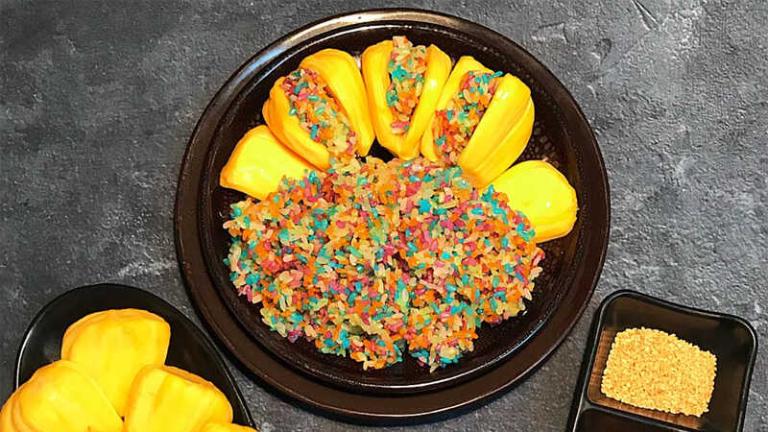
>>> Let’s see more: The Art of Making Com (Young Sticky Rice) in Ha Noi: Tradition & Taste
Magenta Sticky Rice (Xoi La Cam)
Derived from the magenta flower, xoi la cam’s bright purple hue is frequently utilized to accentuate food tray visual appeal on special events. When combined with other vibrant sticky rice recipes, its striking color becomes a favorite.
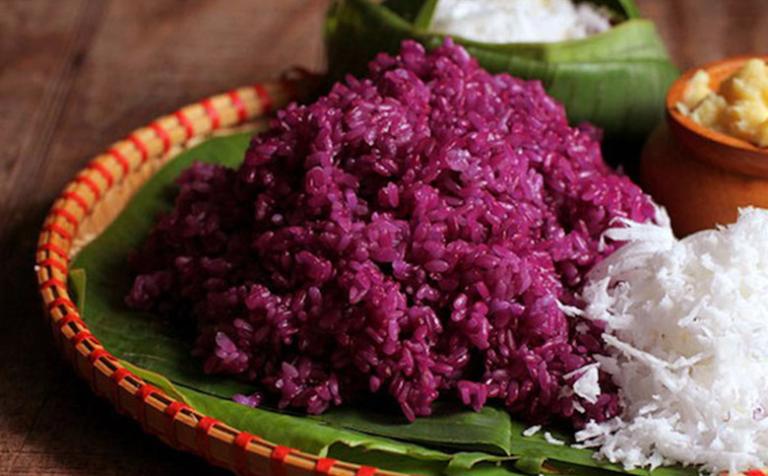
Savory Sticky Rice (Xoi Man)
A terrific lunch or evening meal, Xoi man—or savory sticky rice—is a heartier kind of Vietnamese sticky rice. An abundance of meats—including fried pork paste, shredded pork, quail eggs, and crushed peanuts—are liberally sprinkled this meal. These delicious components taken together produce a very satisfying and nutritious dinner.
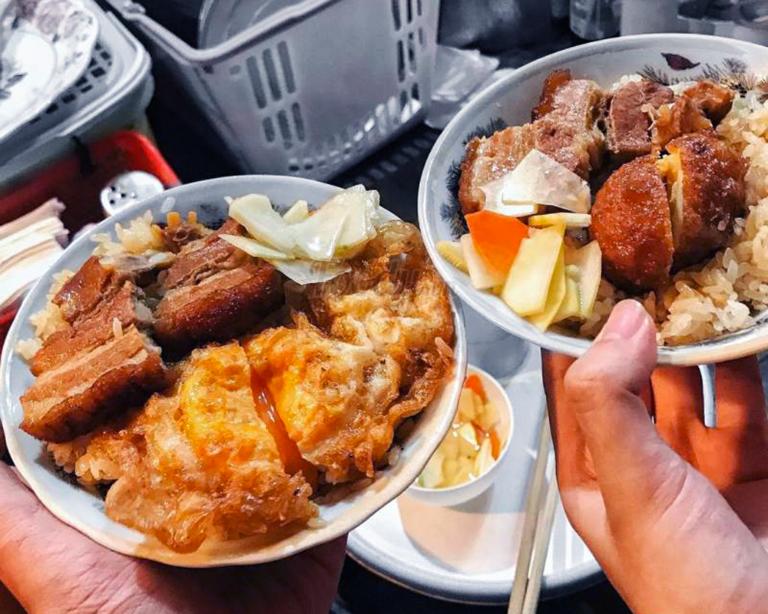
Vietnamese Sticky Rice with Mung Beans (Xoi Xeo)
Among the several street food cuisines available in Vietnam, xoi xeo is a particularly favorite. Mashed mung beans, fried shallots, and a liberal drizz of chicken fat top this form of sticky rice. Affordable and good, this dish combines tastes and textures to be enjoyable. Street sellers, especially in Hanoi where it is regarded as a local specialty, often sell xoi xeo.
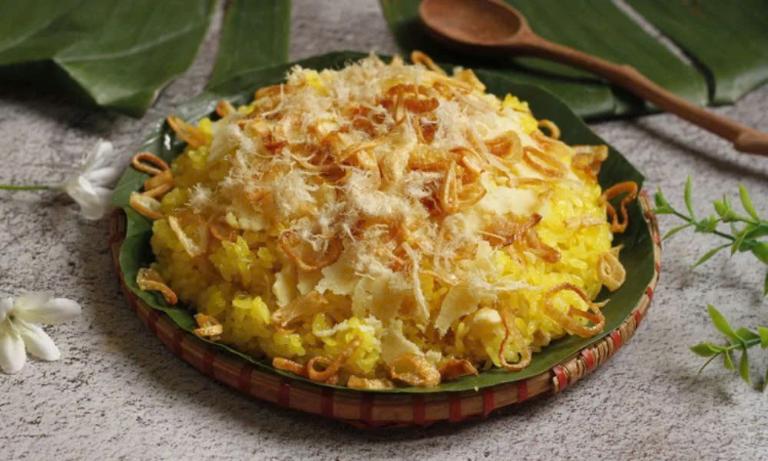
Sticky Rice with Bird Meat (Xoi Chim)
Often saved for special events, Xoi chim is a fresh and modern variation on classic Vietnamese sticky rice. Small bird foods like quail, sparrow, or pigeon mix with premium sticky rice. Before steam-cooked, the meat is meticulously deboned, marinated, diced, blended with the sticky rice. This dish gives the ordinary sticky rice fresh taste and elegance.
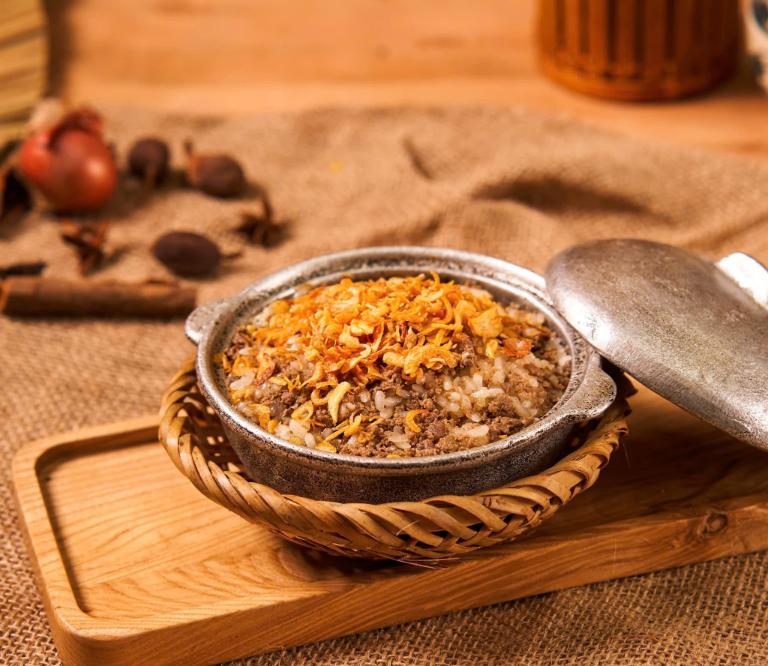
>>> Let’s see more: Bun Cha: Hanoi’s Grilled Pork with Vermicelli Noodles – A Must-Try Dish
Chicken Sticky Rice (Xoi Ga)
Popular in central Vietnam, xoi ga stands out for using chicken broth to give the sticky rice a buttery taste and a beautiful golden colour. Along with sliced onions, pickled carrots or kohlrabi, and Vietnamese coriander for a kick of freshness, the shredded chicken is tossed with the rice. Some varieties might additionally ask for chopped scallions to improve the aromatic attractiveness of the meal.
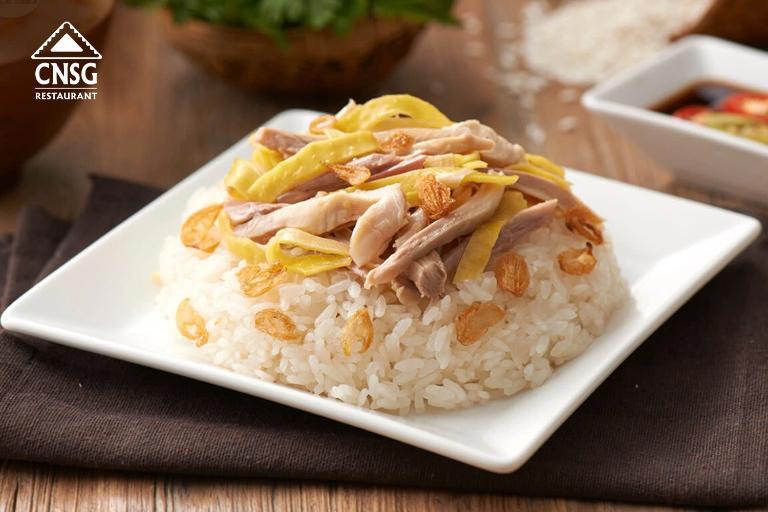
Vietnamese sticky rice is a cultural treasure with a tale of taste, community, and history rather than only food. Whether you’re savoring it during a festive occasion or just grabbing a meal from a street seller, the encounter is likely to stay with you. From its several forms to its importance in Vietnamese society, xôi reflects the rich in culture and flavorful nature of Vietnam.
Related Posts:







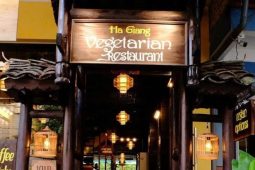
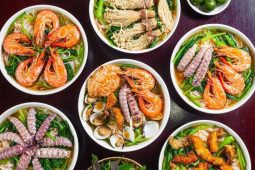

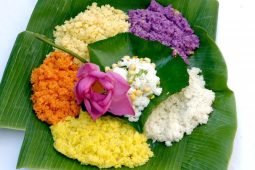
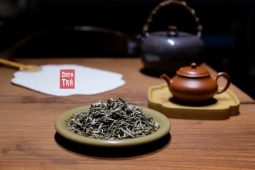
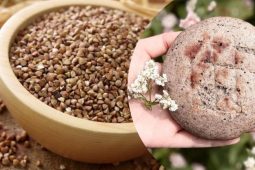
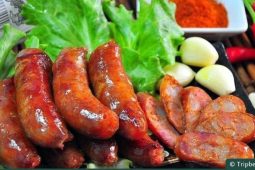
Be the first to comment!